Description
ABSTRACT
Reconsidering the Corporate Governance Concept of Independent Directorship Under Nigerian Law
Kingsley Ibe* and Stanley Oghenevwairhe Omotor**
This article reviews the development of the concept of independent directors in the Nigerian corporate governance space. It adopts the approach of first discussing the current position of the concept of independent directors under the Companies and Allied Matters Act, 2020. It then proceeds to discuss how this concept had been provided for in various codes of corporate governance over the years. The article discusses the similarities and differences between the various provisions on the concept in the statute and codes. As part of its originality, the article offers a critical analysis of the usefulness of the concept of independent directors in Nigeria and appropriate recommendations on how the concept can be best repositioned to achieve the desired effect for which it was introduced.
Keywords: Independent Directors, Nigeria, Corporate Governance, Companies and Allied Matters Act.
INTRODUCTION
The appointment of independent directors to corporate boards has become essential in ensuring good corporate governance in various jurisdictions worldwide. In Nigeria, this concept is now statutorily recognised under the Companies and Allied Matters Act, 2020 (“CAMA” or “CAMA 2020”) (the principal law regulating companies in Nigeria), unlike its predecessor, the Companies and Allied Matters Act1 (“old CAMA”), which did not provide for the requirement of appointing independent directors to boards of directors (“board”). Before the enactment of CAMA 2020, different codes of corporate governance2 had provided for the appointment of independent directors to the boards of directors of companies. Independent directors are directors who are free of influence arising from company officers or shareholding or financial interest in a company. These directors are appointed to monitor the board’s operations, for the board to, in turn, effectively monitor the management of the company.
There are good reasons for introducing the concept of independent directors into corporate governance. However, whether the concept has lived up to its essence, particularly in Nigeria, may be questioned.
* LL.B, BL; Associate, Babalakin and Co, Lagos, Nigeria. Email: ki***********@***il.com.
** N.D (Accountancy), LL.B, BL. Currently, an LL.M candidate at the Peter A. Allard School of Law of the University of British Columbia, Vancouver, Canada; and formerly an Associate at Banwo and Ighodalo, a top tier law firm in Nigeria. Email: om******@***oo.com.
- Cap C20, Laws of the Federation of Nigeria, 2004.
- Such as the Code of Corporate Governance for the Telecommunication Industry 2016 issued by the Nigerian Communication Commission (the NCC Code); the Code of Corporate Governance for Banks and Discount Houses in Nigeria 2014 issued by the Central Bank of Nigeria (the CBN Code); the Code of Corporate Governance for Public Companies in Nigeria, 2011 issued by the Securities and Exchange Commission (the SEC Code); the Code of Good Corporate Governance for Insurance Industry in Nigeria 2009 issued by the National Insurance Commission (the NAICOM Code); and the Circular on Corporate Governance For Pension Fund Operators, 2019 issued by the National Pension Commission (the PENCOM Code).

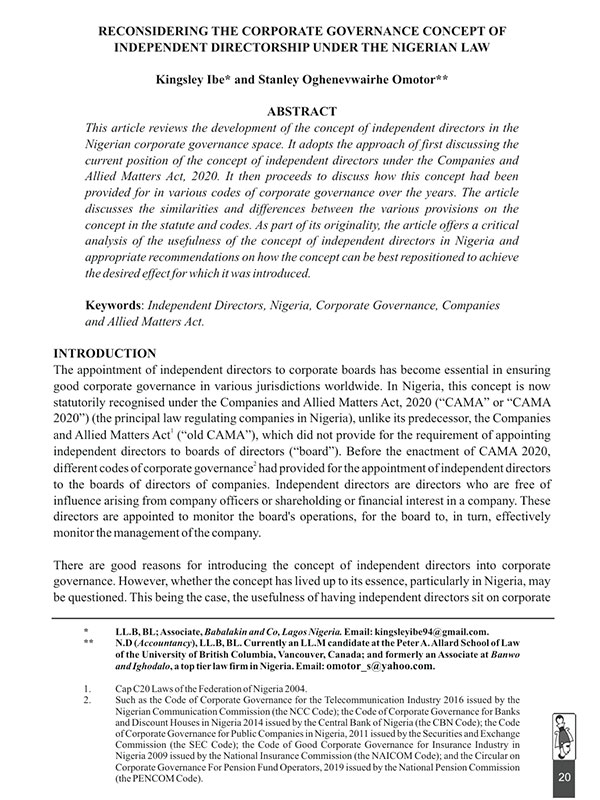
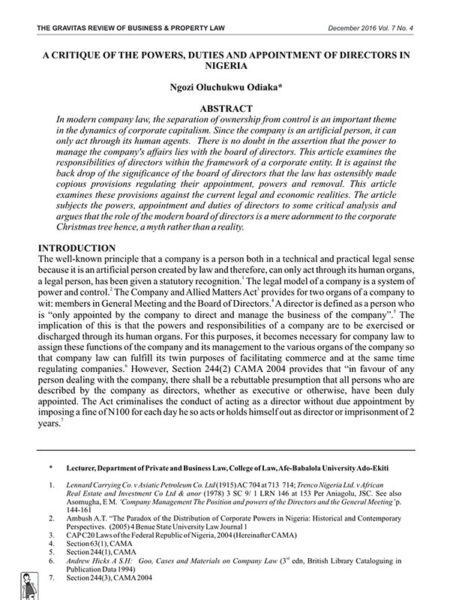
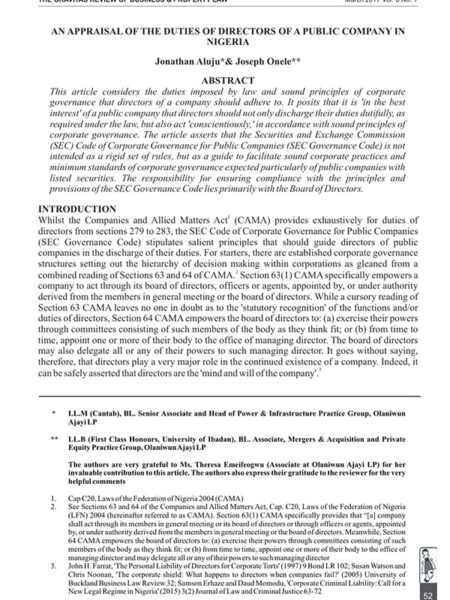
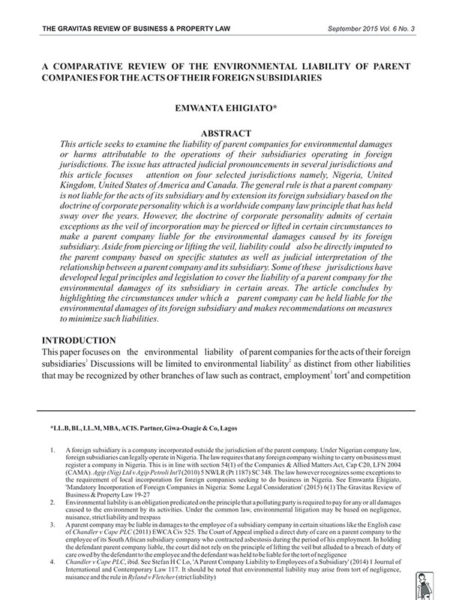
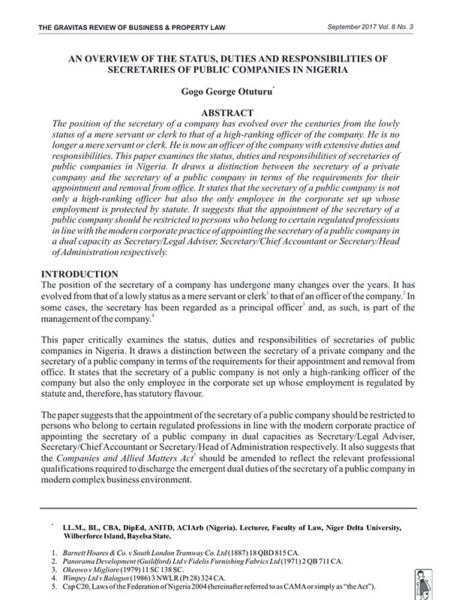


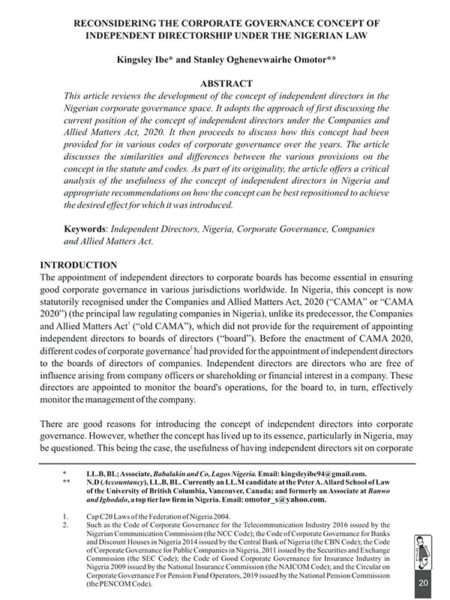
Reviews
There are no reviews yet.